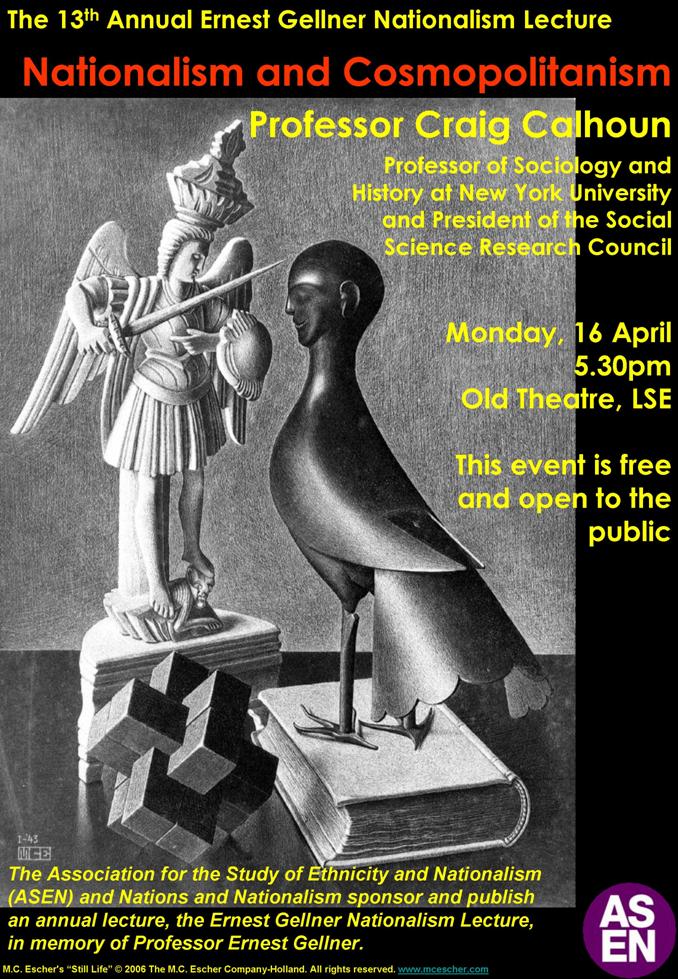
It is the establishment of an anonymous impersonal society, with mutually sustainable atomised individuals, held together above all by a shared culture of this kind, in place of the previous complex structure of local groups, sustained by folk cultures reproduced locally and idiosyncratically by the micro-groups themselves. It means the general diffusion of a school-mediated, academy supervised idiom, codified for the requirements of a reasonably precise bureaucratic and technological communication. The general imposition of a high culture on society, where previously low cultures had taken up the lives of the majority, and in some cases the totality, of the population.

Gellner defined nationalism as "primarily a political principle which holds that the political and the national unit should be congruent" and as Gellner discussed nationalism in a number of works, starting with Thought and Change (1964), and he most notably developed it in Nations and Nationalism (1983). Gellner's theory of nationalism was developed by Ernest Gellner over a number of publications from around the early 1960s to his 1995 death.


 0 kommentar(er)
0 kommentar(er)
